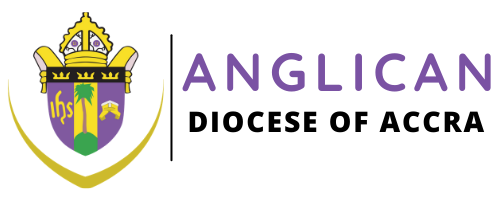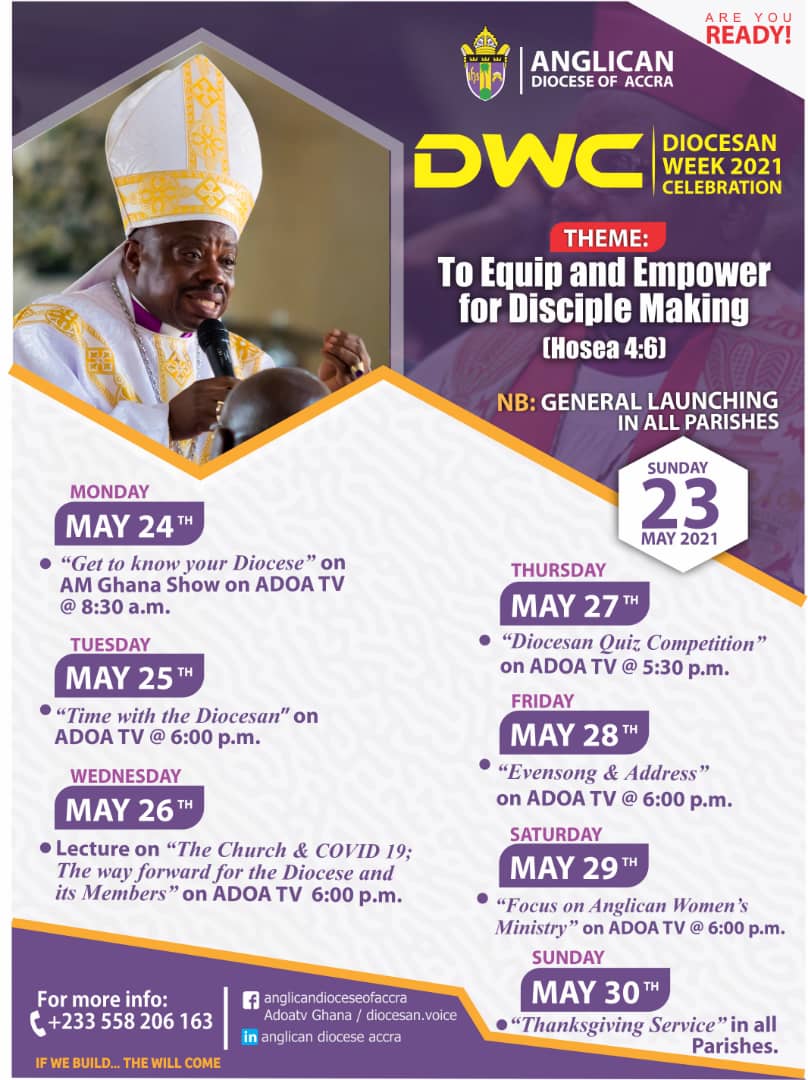I grew up in the Church to know Catechist Ankrah, Catechist Golightly, Catechist Odartey, Catechist Quarcoopome, Catechist Quarshie and Catechist Torto all of blessed memory. These Catechists were also called “Teachers.” So Catechist Quarcoopome was affectionately called Teacher Quarcoopome at St. Mary’s Anglican Church, Accra. Catechist Odartey was also called Teacher Odartey. The others mentioned above were called “Teachers” at St. Barnabas Osu, All Saints Adabraka, St Peter Madina, and St. Peter Nungua where they applied their energies faithfully to the Gospel Mission.
Whilst each of these Catechists had their home base in the missionary enterprise, they traversed every Church in the Greater Accra Region and beyond to lead worship and also to nurture people in the faith. Where priests were not available to say Mass, these Catechists were on hand to lead worship which happens to be the fulcrum on which revolves Anglican spirituality. Unsung Heroes! And I say unsung Heroes because their memories seem to be lost in the minds of the present generation.
Why am I so concerned about the ministry of these men of faith? The reason is quite simple. These were people whose passion for ministry was phenomenal. Their zeal for ministry is a reflection of the passion of the early Church for mission. The Great Commission is said to be the “marching orders” of the Church. In it our Lord declares: All authority in heaven and on earth has been given to me. Therefore, go and make disciples of all nation, baptizing them in the name of the Father and of the Son and of the Holy Spirt, and teaching them everything I have commanded you. And surely I am with you always, to the end of the age (Matthew 28. 19 & 20).
The early Church lived up to the vision of our Lord in the Great Commission. Knowing that they were backed by divine authority which surpasses any human power, the fledgling New Testament Church showed resilience in the face of persecution. One can understand the opposition to the new Christian Mission. The ‘new’ religious movement had to contend with entrenched Judaism that had been the dominant religion several centuries before the Christian era. In such a hostile environment the disciples were backed by divine authority to teach and to baptize.
In their quest to obey our Lord’s command the disciples taught the Gospel and baptized converts. This happened in light of the Apostolic Kerugma. The Apostolic Kerugma which played out in St. Peter’s speech on the Day of Pentecost articulates the biblical truth that the Resurrection of Jesus Christ is a decisive victory over the forces of evil. This Apostolic Kerugma is embodied in the refrain recorded repeatedly in the Acts of Apostles: You killed the author of life but God raised him from the dead. We are witnesses of this (Acts 3. 15 et al).
Generally catechizing, the primary function of the catechists I have mentioned above is the teaching of the basic truths of the Gospel. This must be taught in the language the people understand. Here we must pay attention to the idioms of the people if we want the best in communication. The amazement of the Jerusalem crowd to the “other” tongues spoken on the day of Pentecost tells it all: Are not all these men who are speaking Galileans? Then how is it that each of us hears them in his own native language? (Acts 2. 11). From this statement we deduce that that the tongues spoken was intelligible language clearly understood.
Following the command of our Lord and the example of the disciples, Catechists Ankrah, Golightly, Odartey, Quarcoopome, Quarshie and Torto taught the rudiments of the Christian faith in the vernacular. That they also preached eloquently in the local dialect was a great feat worthy of emulation. We think in English in order to be able to articulate our views in formal communication. But when it comes to Christian formation, we would do ourselves a great deal of service if we used the vernacular. That way the Gospel can be taught and learnt meaningfully. This approach has a biblical warrant in the sense that the New Testament was written in the koine Greek. The koine Greek rather than classical Greek appealed to a larger audience because it was a common dialect. Conversely, if the New Testament had been written in classical Greek, the Gospel mission would have suffered (I hope my good friend Professor John Ekem, a fine proponent of mother-tongue interpretation of Scripture would agree with me on this point).
Notable amongst the duties of our departed cathechists was the teaching of the catechism to confirmation candidates. If you asked any elderly parishioner of the churches I have mentioned above, they would tell you they were taught in the confirmation class by Catechist so- and so. The catechists understood the thought-forms of the people and so were able to teach them effectively. I was outraged to hear a lay pastor of a Ga speaking congregation lead the worship and preach the sermon entirely in English. Then I went to another Ga-speaking congregation expecting to say the Mass in Ga. The warden told me: “Wol3 blofo wo feo” to wit, “Over here, we hold services in the English language.”
True Anglicans like our forebears must respect the vernacular paradigm of the Church of England. At the Reformation Archbishop Thomas Cranmer put together the Book of Common Prayer (BCP) intended to encourage worship in the language of the English People. The success of the Reformation in England depended to a large extent on how English People were taught to worship in their own tongue rather than Latin. Any Church that follows the Church of England must worship primarily in the mother-tongue. In Ghana Churches who have placed premium on the mother tongue practice have succeeded with growing numbers and deep spirituality. Our quest for disciple-making; a clarion call for mission and evangelization in the new Church year must take cognizance of worship in the vernacular.
A few years ago I attended a wedding service of a certain Christian Church which shall remain anonymous. I noticed with delight that the catechist of the Church run a lively commentary on the service in the local dialect from start to finish. As he spoke, I noticed that the congregation listened with rapt attention nodding their heads in appreciation. After the service I noticed a number of people falling over each other to make entries in a book set aside for visitors who would like to fellowship with the Church. This is evangelism made simple and straightforward through effective communication.
As we embark on serious disciple-making in the New Year we must take a leaf from the ministry of the Catechists of yester-years. Their passion for ministry was unparalleled as they worked hard without counting the cost. Here the motto of Adisadel College comes readily to mind: “Others have labored and with share their glory…” As we seek to extend the frontiers of the Church in our quest for disciple-making, may we be guided by the examples of our forebears. Above all, may the Holy Spirit strengthen our feeble human efforts as we follow Him in humility.
And now unto the King Eternal the only wise God we ascribe honour, majesty, dominion, and power forever and ever. Amen.

